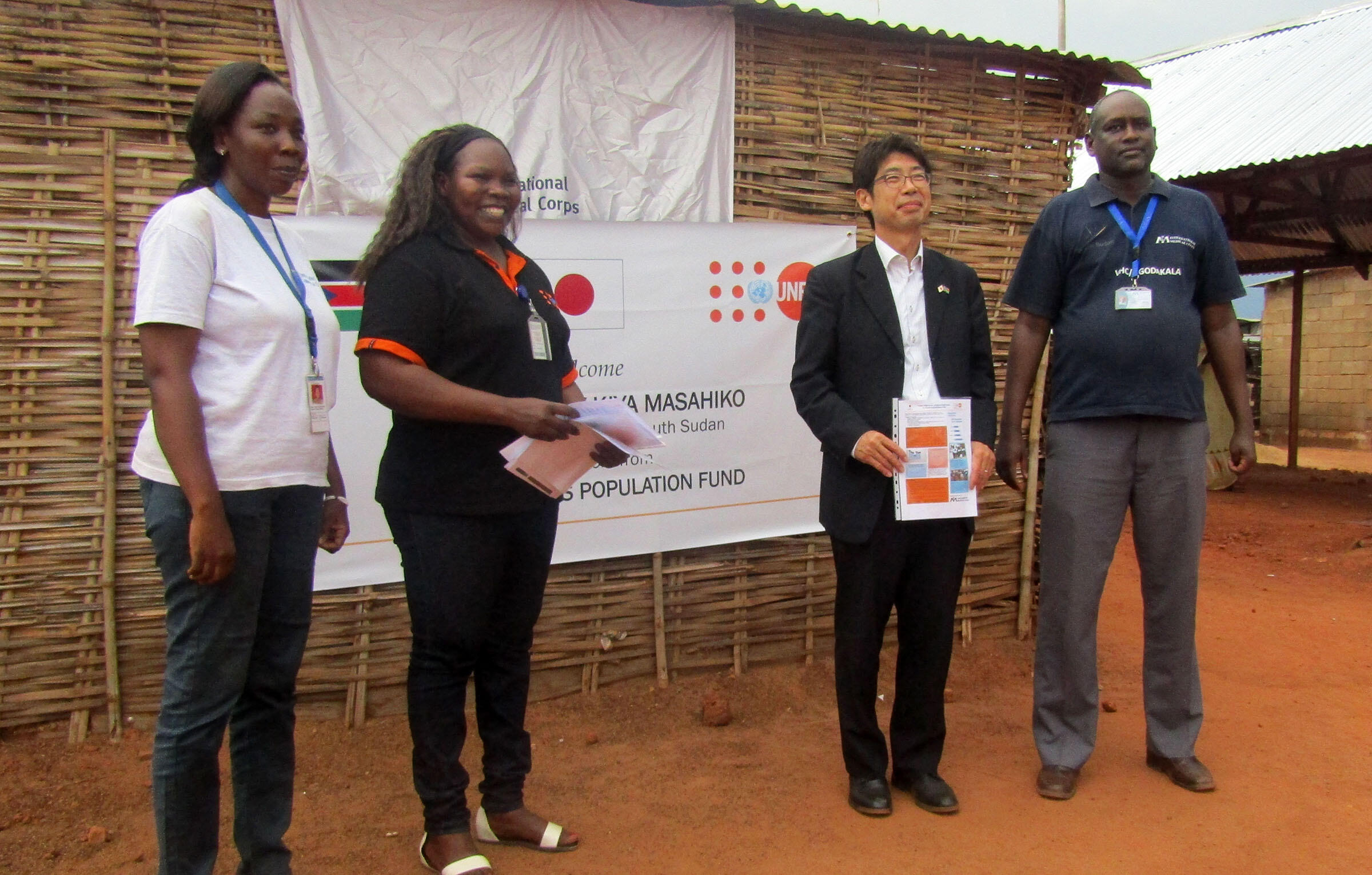Wau, Soputh Sudan - The Ministry of Health acknowledged the cooperation of the Japanese government and UNFPA, the United Nations Population Fund, in the efforts to continue providing reproductive health services to the people affected by the conflict in Wau.
At the Protection of Civilians (POC) site, Japan and UNFPA supports a health facility that provides antenatal and postnatal care, assisted deliveries, family planning, and management of gender-based violence cases.
In terms of ensuring safe births alone, the health facility delivers about 60 babies per month. The clinic operates 24/7 and also serves the population from communities around the POC.
About 135 mothers access the prenatal services and HIV testing at the clinic per month, while 267 family planning users and 249 new mothers have also availed of services in the facility in the last six months.
Health Minister Riek Gai Kok lauded the valuable partnership during a recent visit to Wau to jointly re-open a blood bank and laboratory at the Wau Teaching Hospital with Japanese Ambassador to South Sudan Kiya Masahiko and the World Health Organization. The facility will have a vital link to addressing the need for blood in some childbirth complications and thereby help prevent maternal deaths.
Japanese Ambassador to South Sudan Kiya Masahiko expressed appreciation for the life-saving services provided at the POC site clinic and encouraged UN agencies to integrate health services to save more lives. “Thank you, UNFPA, for the good job. This is a big contribution to the humanitarian response for internally-displaced persons in Wau,” he said.
Through its Strengthening Midwifery Services (SMS) Project, UNFPA also supports the Wau Teaching Hospital by deploying midwives to provide reproductive health services, as well as through the provision of medical equipment, medicines and supplies. The SMS Project, funded by the governments of Canada and Sweden, also supports three midwifery schools in Wau.
The health minister said the deployment of midwives at the Wau Teaching Hospital was crucial in improving the staffing of the hospital with qualified health personnel.


